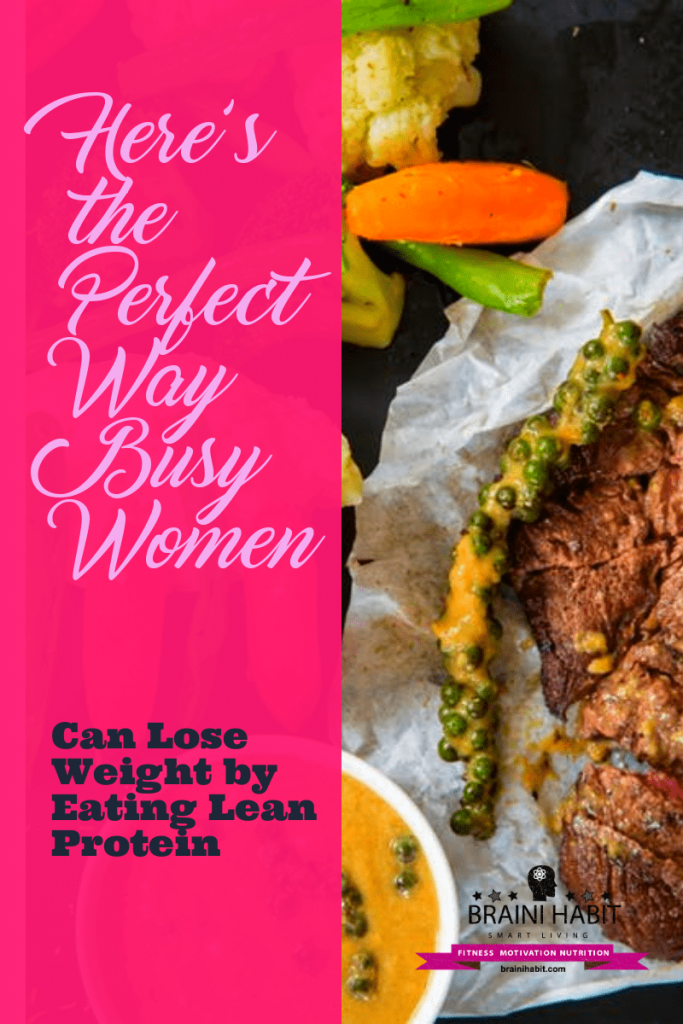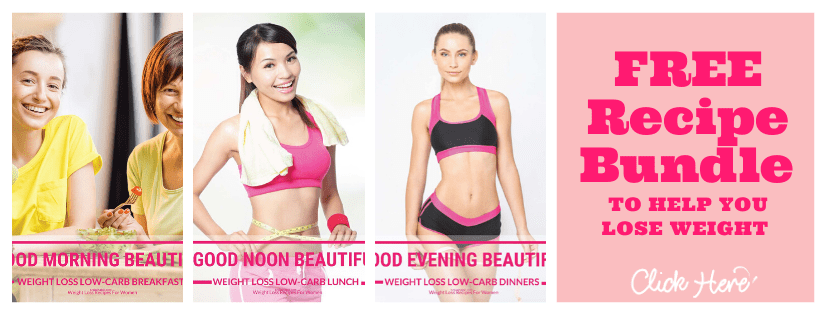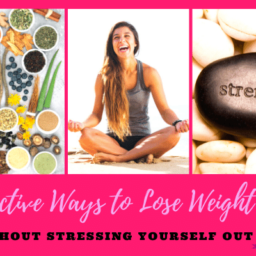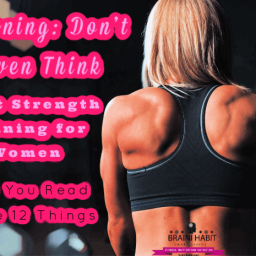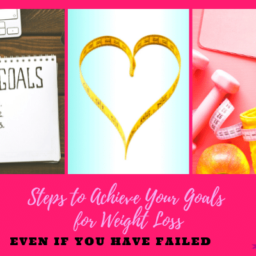Nowadays, in our fast-paced daily routine, it is extremely hard to eat healthy.
We simply do not have the time for a proper meal. This forces us to snack on whatever foods are available.
However, those foods are often unhealthy and quite caloric, which results in gaining unwanted weight.
We need healthier and more satiating food choices, which will make for a great meal when we want to keep optimal weight and lose some belly fat.
Such options are high-protein foods, which are also not stuffed with fat, carbohydrates and calories.
In this article, we will mention the healthiest and most satiating sources of lean protein for you.
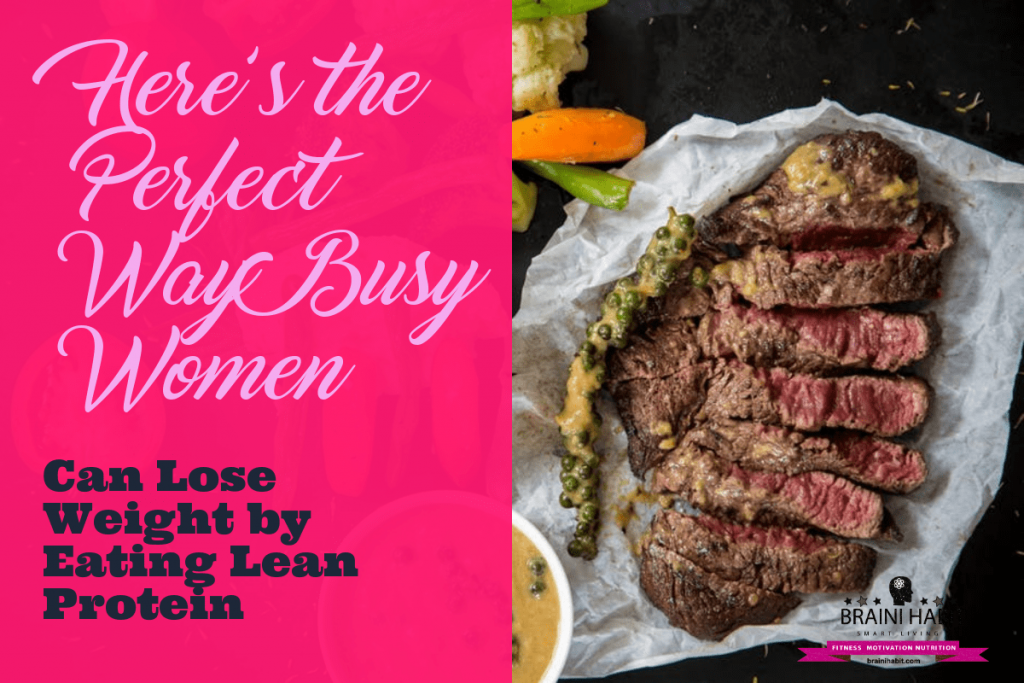
- The relationship between protein and metabolism
- Protein and other benefits related to weight loss
- One of the first choices for a quick high lean protein snack should be low-fat dairy
- Eggs are quite healthy as well as a portable type of snack
- Lean meat is a great source of quality proteins
- You can also snack on tuna for extra lean protein
- Nuts and seeds are a great protein snack when used in moderation
- Protein supplements are a great option for a busy day, as well as after a workout
- We should not overdo supplementation, or try to replace a healthy diet with it
- The bottom line on lean protein for women
The relationship between protein and metabolism
First, we need to explain how protein works when it comes to fat-loss.
In order to lose weight, you need to consume less energy with your food. This, however, creates the risk of losing muscle as well as fat.
For an average female, around 30% of your body weight is muscle. Losing muscle mass is dangerous because it will slow down your metabolism.
Muscle tissue is crucial for burning both glucose and fatty acids.
If we lose it, we become much more susceptible to gaining more fat, as well as increasing the risk of metabolic diseases, such as type 2 diabetes (1).
One of the ways to maintain it is by having enough lean protein in our diet.
Everyone knows that protein is important for building muscle, and results in significant hypertrophy when paired with resistance training (2).
However, even if we want to lose weight, and we maintain a caloric deficit, we should not reduce the amount of protein that we eat.
Further evidence suggests that a sufficient amount of protein preserves muscle and overall metabolism even when we have restricted our energy intake (3).
This makes protein extremely important for long-lasting fat loss, and not simply short term reductions in weight, which later you might regain.
Take-Away:
Sufficient lean protein in the diet will help you preserve muscle mass, which is the main driver of your metabolism.
Protein and other benefits related to weight loss
The health benefits of sufficient protein in your diet extend further than just boosting your metabolism.
Science is conclusive that enough lean protein in the diet, not only prevents the loss of muscle but helps slimming down in other ways as well (4).
A study compared low-fat and low-carbohydrate diets while matching the amount of calories and protein, and found out that both groups lost the same amount of fat (5).
It shows that enough protein improves satiety greater than fats or carbs and together with caloric deficit is the main requirement for successful weight loss.
Protein is much slower to digest which results in a prolonged feeling of fullness and reduced energy intake, even without restriction on purpose.
Protein also leads to higher thermogenesis. This is the energy used in order to digest, absorb and store the nutrients from a portion of food.
Further scientific evidence shows that the recommended levels of protein – 0.8 – 1.2g per kg of body weight are enough to help people lose weight and prevent weight cycling (6).
Weight cycling is also known as the yo-yo effect. This is the process of gaining back the fat which you put so much effort to lose, usually occurring when you stop dieting.
Protein can further benefit liver and bone health.
A meta-analysis of multiple studies shows that dietary protein has positive effects on bone health and reduces the risk of osteoporosis (7).
Sufficient protein is also required for good liver function.
A study performed in subjects with obesity-related liver problems (“fatty liver”) found that more protein in the diet increased the antioxidative capacities of the organ (8).
Take-Away:
Protein aids weight loss and provides better satiation compared to carbohydrates or fats. It also has a higher thermogenic effect and it is important for overall health.
One of the first choices for a quick high lean protein snack should be low-fat dairy
Why not snack on some yogurt? A study has shown that high-protein yogurt is a great snack compared to high-fat alternatives (9).
It improved appetite control and satiety in healthy women, thus a reduction in the total amount of food consumed afterward.
However, not any type of yogurt is high-protein.
Plain, whole-milk yogurt is a great food that is rich in probiotics and essential nutrients, but it has more carbohydrates than protein.
On the other hand, Greek yogurt is a much better snack. The non-fat options have less than 60 kcals per 100 grams of the product as well as 10 grams of quality protein.
Another great option is skyr – Icelandic yogurt. It has similar nutritional properties – less than 70 kcals and more than 13 grams of protein per 100 grams.
We cannot talk about high-protein dairy products without also mentioning cottage cheese.
Low-fat options have less than 90 kcals and more than 10 grams of protein for every 100 grams of the product.
Some concerns have been previously raised about the consumption of milk and dairy products and the relation to certain diseases, especially cancer.
The only quality studies present are the ones linking the consumption of whole-fat milk to prostate cancer (10).
However, there is no such evidence for low-fat milk or dairy products.
There are even systematic reviews of multiple literature sources which conclusively show that milk consumption is not related to any other type of cancer (11).
Evidence suggests it might even reduce the risk of some types of cancer, as well as the risk for diabetes and cardiovascular diseases.
Take-Away:
Low-fat dairy products, such as Greek yogurt, skyr, and cottage cheese make for some great high lean protein snacks which will provide satiety and keep your daily calories low.
Eggs are quite healthy as well as a portable type of snack
Eggs are another great source of lean protein which you can snack on when you are hungry but busy.
When on a caloric deficit, studies show that eggs are a good idea for a breakfast (12).
Despite that, the rate of weight loss in the study depended on the size of the caloric deficit.
The high-protein breakfast simply provided better satiety and adherence to the restrictions, compared to the high-carbohydrate option.
One of the easiest ways to consume eggs when busy is to have them ready for use, for example, hard-boiled.
The egg consists of an egg white and an egg yolk.
The egg white of a single egg provides more than 3g of high-quality lean protein and only 15 kcals. It basically consists of just protein.
The egg yolk also provides about 3g of protein, as well as 55 kcals.
While most people prefer consuming just the whites, and avoid the fat and cholesterol content of the yolk, it has nutritional qualities that should not be overlooked.
The yolk is filled up with vitamins and minerals. It contains vitamins A, E and K. It is one of the very few dietary options that contain vitamin D.
It also contains sufficient amounts of calcium, zinc, iron, selenium, and phosphorus.
Despite the high cholesterol content, studies do not show that consuming eggs with the yolk increases cardiovascular risk.
A meta-analysis of over 28,000 participants showed that consuming an egg daily does not raise the risk of heart disease (13).
Another study found that the intake of dietary cholesterol down-regulates the endogenous synthesis and does not raise the total levels of blood cholesterol (14).
The study involved consuming 3 eggs with yolks daily for over 13 weeks.
Take-Away:
Boiled eggs are easy to snack on, and they provide one of the highest-quality proteins, combined with a nutrient-dense yolk. Consuming up to 3 eggs daily with the yolk is considered safe for cardiovascular health.
Lean meat is a great source of quality proteins
When we pick our main sources of protein, the most obvious pick is meat.
However, not every meat is a good dietary choice. Some meats are quite rich in fat and calories.
Also, red meat and processed meat are associated with increased mortality from cardiovascular diseases and cancer (15).
However, lean meats and even red meat that is trimmed of all visible fat are not proven to be increasing the risk for heart diseases (16).
Poultry is a good example of a healthy meat source of lean protein.
We should not forget to remove the skin of the meat to significantly reduce the content of fat and cholesterol (17).
Preferably we can remove it after cooking, to preserve the moisture in the meat.
Great examples are chicken breasts and turkey.
Cooked chicken breasts without the skin have only 165 kcals per 100 grams of product and whopping 30 grams of protein.
Depending on your body weight, half a piece of cooked chicken breast which is roughly 80 grams might provide a third of the protein you need for the day.
Other parts of the chicken are not so low in fat, however, turkey is a much leaner meat overall.
A 100g of cooked turkey, no matter if you pick a breast or a thigh is only 190kcals and again provides 30 grams of quality protein.
Take-Away:
Some meat sources like chicken breasts are extremely dense in high-quality lean protein while packing on very little calories. The so-called “white” meat does not increase the risk of cardiovascular diseases or other chronic conditions.
You can also snack on tuna for extra lean protein
Fish is also a great source of quality protein, as well as some nutrients that are of importance to human health.
A portion of easy food to snack on would be a can of tuna for example.
100 grams of canned tuna, drained of water is less than 200 kcals, while it provides more than 24 grams of protein.
Tuna is also rich in other nutrients, such as omega 3 fatty acids and vitamin D.
Other types of fish, such as salmon, mackerel, sardines, and anchovies are even higher in omega 3, however, they also pack more fat and calories.
Studies show that such good dietary sources of omega 3 provide significant health benefits and they should be a part of a healthy diet in general (18).
The benefits of omega 3 fatty acids are numerous, mainly related to their anti-inflammatory effects.
A meta-analysis shows that they reduce many of the factors of inflammation (19).
There is compelling evidence that omega 3 are beneficial for many autoimmune diseases like rheumatoid arthritis, Crohn’s disease, ulcerative colitis, psoriasis, lupus erythematosus, multiple sclerosis, and migraine (20).
They help lower blood pressure (21), aid the treatment of asthma (22), and reduce symptoms of depression (23).
It has to be noted that those anti-inflammatory effects depend not only on the sufficiency of omega 3 in the diet but also the ratio between omega 3 and omega 6 (24).
Omega 6 has the opposite effects – they promote inflammation and they are quite common in many foods.
This is why it is important to keep a healthy ratio of omega 6 to omega3, not higher than 4:1.
Take-Away:
While fish is extremely important for getting a sufficient amount of omega 3 fatty acids and even vitamin D, it might be rather caloric. Also, fish can be hard to snack on as a kind of a lean protein, with the exception of canned tuna.
Nuts and seeds are a great protein snack when used in moderation
Those are foods that a lot of people already snack on. However, for some reason, those people do not achieve the desired weight loss effects.
The reason is that everyone perceives the amount of a handful of nuts differently.
Almonds are a type of nuts with a quite high protein content
For example, a normal handful of them is considered between 10-20 almonds.
10 almonds have about 80 calories and 3 grams of protein. However, this is only about 15 grams of nuts.
However, 100 grams of almonds have 21 grams of protein but also contain more than 550 kcals.
This is why nuts including almonds should be used sparingly when trying to lose weight.
Even small amounts of almonds, however, are very rich in nutrients. They have large amounts of vitamin E and magnesium.
Vitamin E has beneficial antioxidant and anti-inflammatory effects (25).
As of seeds, pumpkin seeds are some of the best high lean protein options.
Again you should use them sparingly, as 100 grams of those contain more than 450 kcals, as well as over 20 grams of protein.
They are full of valuable nutrients such as zinc and magnesium, as well as packed with antioxidants (26).
Magnesium is one of the most deficient minerals in our diet.
For example, a study performed on the US population found out that 48% have inadequate intake (27).
This can be detrimental to overall health, as magnesium is important for the function of every cell in our bodies, especially in the nervous, cardiovascular, and musculoskeletal systems.
A deficiency can lead to irregular heartbeat and muscle cramps (28).
Magnesium is proven to help against high blood pressure (29), improve sleep and reduce the risk of depressions (30).
Take-Away:
Nuts and seeds are very commonly used as a high lean protein type of snack, however, they also pack a lot of calories and should be used sparingly. Still, they are very nutrient-dense.
Protein supplements are a great option for a busy day, as well as after a workout
This is one of the most widely used methods to replace a meal with a quick, high-protein snack when in a hurry.
The most commonly used, studied, and efficient type of protein supplement is whey. It also has a great amino acid profile which determines it’s high quality.
Whey protein is a mixture of protein that is contained in milk. The other type of protein mixture is called casein.
The ratio between the two varies between different milk types, for example in human milk it is 60% whey and 40% casein, while in cow milk it is 80% casein and 20% whey.
A study conducted on 70 subjects found out that whey protein has a stronger positive effect on satiety after a meal, compared to carbohydrates or even casein (31).
This makes it a great tool to reduce hunger throughout a busy day.
Supplementation is also helpful for people who participate in a lot of physical activities.
Another study shows that it increases recovery in women after exercise-induced muscle damage (32).
Whey protein is beneficial for building muscle too when combined with proper training with weights (33).
Furthermore, supplementation counteracts the catabolic effect of infections and facilitates recovery from them (34).
Adequate amounts of protein might be even more effective for battling infections than the commonly used multivitamins in such cases.
Take-Away:
Protein supplements such as whey protein are very effective especially when having a busy schedule. It provides quality protein, good satiety as well as other numerous health benefits.
We should not overdo supplementation, or try to replace a healthy diet with it
Despite being a very useful way to get enough protein and satiate yourself with supplementation, we should not overdo it.
Apart from using it as a snack it would be beneficial to use whey protein only after a physical exercise.
It is very effective in elevating muscle protein synthesis and stimulating recovery according to The International Society of Sports Nutrition (35).
Although some studies show that whey is better than casein in maintaining satiety, both are very effective in supporting muscle growth.
A study comparing the performance-enhancing effects of both types of protein supplements did not find significant differences between the two (36).
While whey protein is rather easily absorbable, casein is much slower to get digested.
Another study suggests that it might be most optimal to take both (37).
This is why when using a protein supplement, it might be a good idea to dissolve the powder into low-fat milk instead of water. Cow milk protein is 80% casein.
Too much protein has risks for people with kidney problems.
Even in the early stages, it is shown to worsen many conditions affecting kidney function (38).
High protein intake can speed up the progression of a condition towards kidney failure.
However, for healthy kidneys even large amounts of dietary protein appear to be safe if the overall nutrition is healthy and balanced.
Take-Away:
Whey-protein is most effective as a supplement when combined with other types of protein. However, protein supplements cannot be a replacement for a healthy nutritious diet.
The bottom line on lean protein for women
High lean protein meals that are also low in calories appear to be a great option when it comes to controlling hunger, caloric intake, and weight management.
Some of those foods are also quite suitable for snacking on when you are too busy to have a properly balanced meal with enough vegetables, etc.
Such examples are boiled eggs, Greek yogurt, skyr, tuna, a handful of nuts and seeds or a protein supplement.
